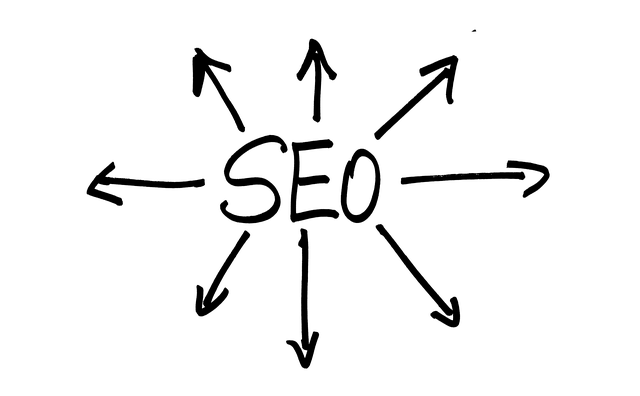Professional SEO Programs equip beginners with essential tools for online success. These programs teach keyword research, a cornerstone for understanding user intent and optimizing content. On-page optimization techniques enhance website structure and visibility, while off-page strategies like link building build authority. Through performance analysis, beginners learn to refine their strategies, ensuring their websites attract organic traffic and convert visitors into customers. These comprehensive courses provide a structured path to mastering SEO fundamentals and advanced tactics, preparing students for the dynamic digital marketing world.
“Welcome to your ultimate SEO University, a beginner’s guide to navigating the digital marketing landscape. In this comprehensive article, we demystify Search Engine Optimization (SEO) strategies that drive online visibility. From understanding basic concepts to delving into advanced techniques, you’ll explore essential elements like keyword research and on-page optimization. Learn how off-page SEO builds backlinks and discover the power of data-driven decisions. Additionally, we highlight the significance of professional SEO programs for career growth in this dynamic field.”
Understanding the Basics of SEO: Unlocking Online Visibility

Understanding the basics of SEO is like unlocking a hidden code that can significantly boost your online visibility. Search Engine Optimization (SEO) is the practice of optimizing websites and content to rank higher on search engine results pages (SERPs). This, in turn, increases organic traffic from relevant searches, which is crucial for any business aiming to thrive in the digital landscape. By understanding how search engines crawl, index, and rank websites, beginners can start implementing effective strategies that will make their online presence more noticeable.
Professional SEO programs often begin with teaching foundational concepts like keyword research, on-page optimization, and link building. Keywords are the backbone of SEO as they help search engines understand the context and intent behind a user’s query. On-page optimization involves making content relevant and engaging while ensuring it aligns with the chosen keywords. Link building, another critical aspect, establishes authority by gaining backlinks from reputable sources, which signals to search engines that your website offers valuable information.
The Role of Keyword Research in SEO Strategies

In the realm of online visibility, Keyword Research stands as a cornerstone for any successful SEO (Search Engine Optimization) strategy within Professional SEO Programs. It involves understanding user intent and identifying relevant terms that potential customers might use when searching for products or services related to your niche. By employing robust keyword research tools, businesses can uncover valuable insights into the language their target audience uses, thereby enhancing the effectiveness of content creation and online marketing campaigns.
This process is pivotal in shaping SEO strategies as it ensures that website content resonates with users’ queries. Well-researched keywords enable content creators to optimize web pages, titles, headings, and meta descriptions, making them more appealing to search engines like Google. As a result, websites rank higher on search results pages (SERPs), attracting organic traffic and increasing the likelihood of converting visitors into customers.
On-Page SEO Optimization: A Step-by-Step Guide

On-Page SEO optimization is a crucial component for any aspiring digital marketer, especially within the realm of professional SEO programs. It involves refining your website’s content and structure to enhance its visibility on search engines. A step-by-step guide can demystify this process. Firstly, conduct thorough keyword research to identify relevant terms your target audience uses when searching for your products or services. Incorporate these keywords naturally into your web page titles, headings, meta descriptions, and throughout the content, ensuring a balanced readability.
Secondly, optimize your website’s technical aspects. This includes improving page load speed, ensuring mobile-friendliness, and creating user-friendly URLs. Use descriptive, unique URL structures that include target keywords. Optimize images by adding alt tags with relevant keywords, which aids search engines in understanding the content of your visuals. Lastly, leverage internal linking to connect related pages within your site, guiding users and search engine crawlers through your website’s information architecture.
Off-Page SEO Techniques: Building Quality Backlinks

Off-page SEO focuses on activities outside your website to boost its search rankings. One of the most powerful tools in an SEO university for beginners’ arsenal is building quality backlinks. These are essentially links from other websites that direct users and search engines back to yours. When reputable and relevant sites link to your content, it tells search engines your site is a valuable resource. This signals to algorithms that your website provides credible information, leading to higher search rankings over time.
Professional SEO programs emphasize the importance of acquiring these backlinks from authoritative sources. Strategies include guest blogging, where you contribute high-quality content to other blogs in your industry, securing media mentions, and creating shareable assets like infographics or research papers that naturally attract links. Remember, not all backlinks are equal; quality trumps quantity. Each backlink should ideally come from a trusted, relevant source to avoid penalties and ensure your SEO efforts yield the best results.
Analyzing SEO Performance and Making Data-Driven Decisions

Analyzing SEO performance is a crucial step for any beginner in the field. It involves using professional SEO programs to track and measure key metrics such as organic traffic, keyword rankings, bounce rates, and conversion rates. By gathering this data, beginners can gain valuable insights into what’s working and what isn’t, enabling them to make informed decisions that drive improvement.
Making data-driven decisions is essential for optimizing search engine visibility effectively. Armed with the insights from SEO performance analysis, beginners can adjust their content strategies, refine meta tags, and improve site speed to enhance user experience. This iterative process helps in refining SEO efforts over time, ensuring that the website remains competitive in a dynamic online landscape.
Professional SEO Programs: Enhancing Skills for Career Advancement

For those aspiring to build a career in digital marketing, professional SEO programs offer a structured path to mastery. These comprehensive courses, designed by industry experts, cover everything from foundational concepts to advanced strategies. By enrolling in such programs, beginners can gain a solid understanding of search engine optimization (SEO) principles and learn how to implement them effectively.
Professional SEO programs not only equip students with technical knowledge but also foster practical skills. Hands-on projects, case studies, and simulations allow aspiring SEO specialists to apply their learning to real-world scenarios. This blend of theory and practice ensures that graduates are job-ready and equipped to navigate the dynamic landscape of digital marketing.
